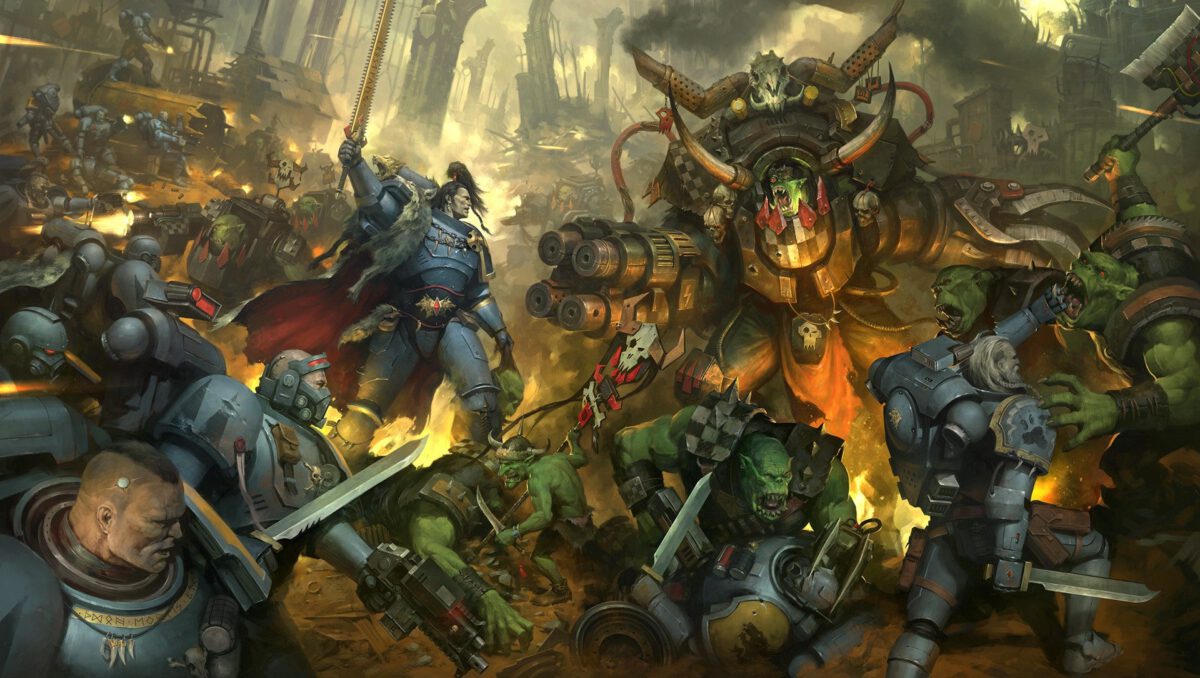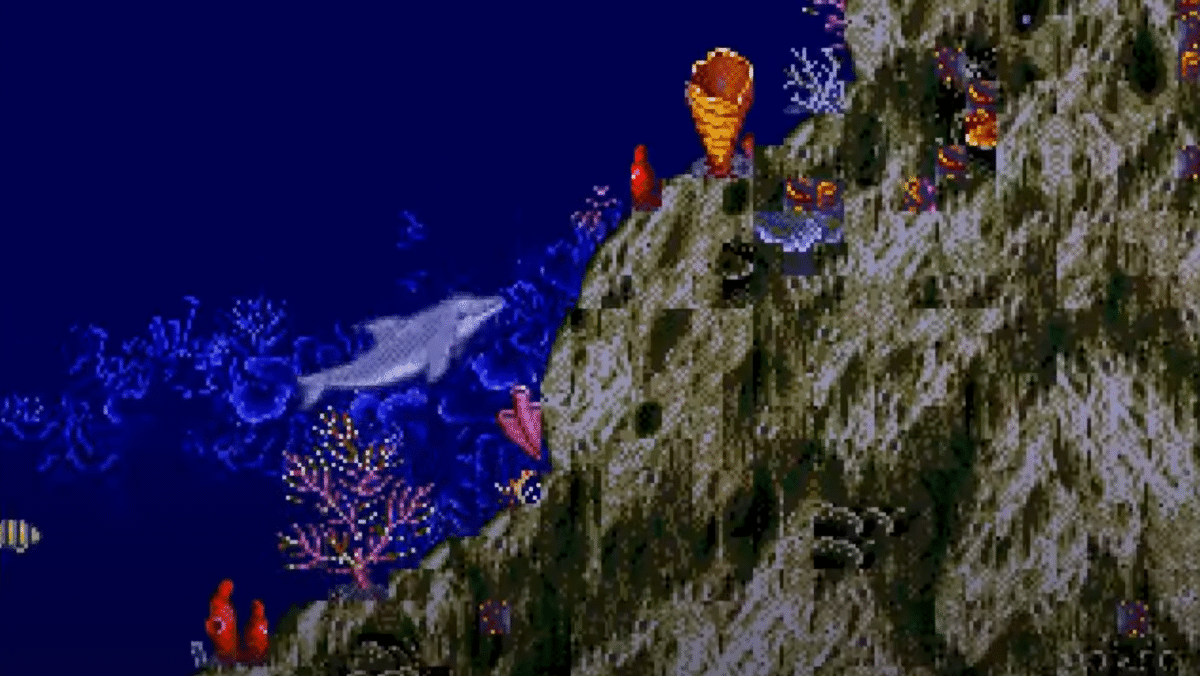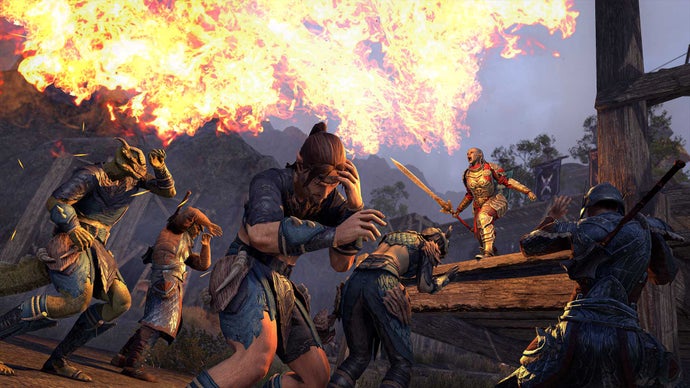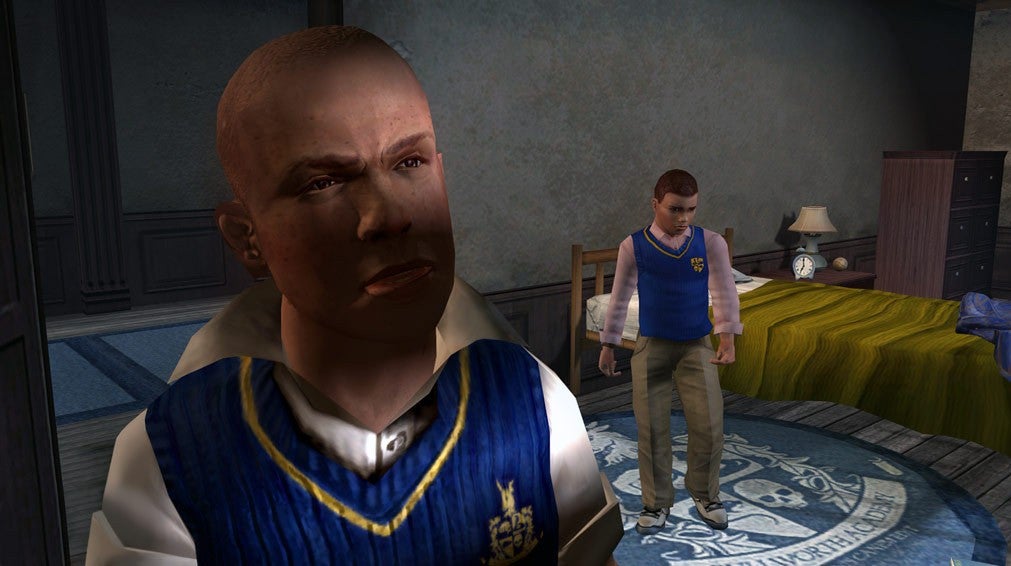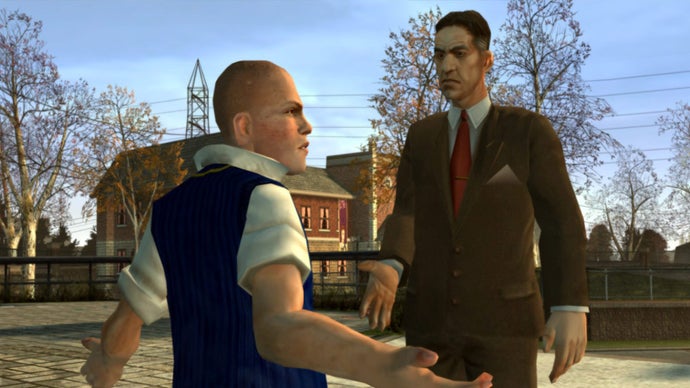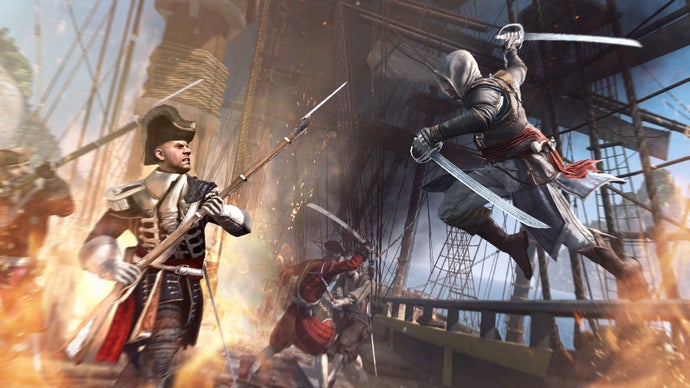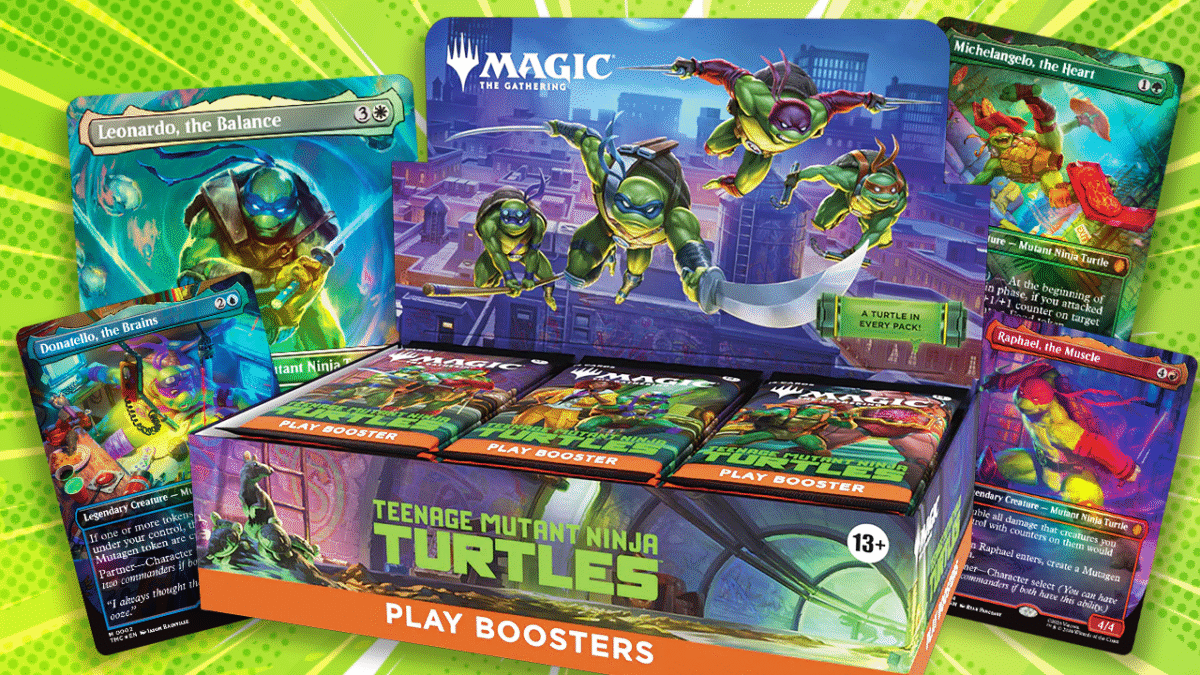
Games Workshop has confirmed that a recently released Warhammer 40,000 army set a sales record for the company, reinforcing this Space Marine chapter as among the most popular in the setting.
Delivering Games Workshop’s latest financial results, CEO Kevin Rountree confirmed that the Space Wolves secured a new record for army set sales at the company. This relates to the Space Wolves army set that launched in May last year, and which you can see in the image below. It contains 28 brand-new miniatures, a Codex Supplement for the Great Companies of Fenris, a set of datasheet cards, and a new transfer sheet. In terms of minis, the army set includes a Wolf Guard Battle Leader, a Wolf Priest, three Wolf Guard Headtakers, 10 Blood Claws, and 10 Grey Hunters.
Rountree called the army set format one that is “specifically designed for hobbyists who want ‘all the new miniatures’ in a release.” Clearly, it proved popular. This army set benefited from amazing-looking minis, the amount of time since the Space Wolves had seen a refresh, and the enduring popularity of the Space Wolves themselves. The Space Wolves army set is sold out at Games Workshop, leaving fans faced with the prospect of paying a markup from the likes of eBay.
For the uninitiated, the Space Wolves are a long-running and legendary chapter of Space Marines heavily inspired by Norse mythology and Viking culture. They’re a savage, in your face group who like getting up close and ripping their enemies to shreds with the help of actual space wolves. Their primarch (demigod sons of the Emperor who led the original Space Marine legions before the Horus Heresy tore them apart), is Leman Russ, one of the most popular in the setting despite the fact he has never been active in the 41st millennium (there are rumblings he may return, as Ultramarines boss Roboute Guilliman and Dark Angels chief Lion El’Jonson have).
The Space Wolves — as evidenced by their army set sales record — are right up there in terms of Space Marine chapter popularity. Without having hard data to back up this claim, I’d suggest the Ultramarines are there or thereabouts given they’re the poster boys of Warhammer 40,000, and Ultramarines captain Titus, protagonist of the hugely popular Space Marine 2 video game, is leading the tabletop wargame’s next narrative expansion. But I suspect the Blood Angels (glorious space vampires with a dark secret), and the Dark Angels (righteous space crusaders) aren’t far behind.
So! I’ve put together a poll, below, with what I suspect are the likely candidates for most popular Space Marine chapter, so that IGN’s readers can vote for their favorite. For science! For the Emperor!
In other Warhammer news, Games Workshop has banned the use of AI in the making of its various products, much to the delight of fans. And we have a brief update on Henry Cavill’s Warhammer 40,000 Cinematic Universe, which still feels some way away.
Image credit: Games Workshop.
Wesley is Director, News at IGN. Find him on Twitter at @wyp100. You can reach Wesley at wesley_yinpoole@ign.com or confidentially at wyp100@proton.me.

